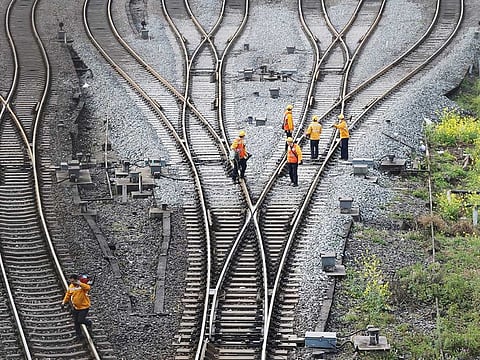Celebrating a decade of progress and transformation
China’s BRI Forum marks ten years of evolution amid criticisms and future ambitions

China has successfully hosted the third Belt and Road Initiative (BRI) Forum coinciding with the tenth anniversary of the launch of BRI in 2013. 130 countries and 30 international organisations participated. This was an opportunity to reflect on the progress, and lay down plans for the future.
The Forum was held in the wake of constant Western media attacks on the pace of China’s economy and its ability to sustain such a heavy-duty project. The release of better-than-expected figures on the eve of the Forum indicated that China’s economy was on track for a 5 per cent growth target silenced many critics.
President Xi Jinping subsequently reaffirmed the commitment of 780 billion Yuan ($107 billion) to finance signature projects for the next five years. President Xi also laid out shifting of the emphasis for the choice of projects, from previous grand to “small but beautiful” meaning green development for the future.
Aimed at stitching China closer to the world through infrastructure development, particularly transport and energy China has made a significant difference in much of the 150 or so countries that have signed up for the BRI. The vision itself, tying China to much of the Global South and given the benefits accrued by either side this may be a perpetual enterprise.
Dubbed as a “project of the century” BRI is a major financial, manufacturing and logistical undertaking. While raising the developmental bar for the ‘South’ the project creates a huge market and political opportunities for China.
Plenty of agreements in follow up to BRI brought forth China’s access to energy and minerals in the participating countries. BRI helped point focus on Africa, South America and the Middle East. It is estimated that goods valued at $19.1 trillion were traded between China and the BRI associated countries during the last decade.
The biggest criticism of BRI’s funding is based on Western allegations of ‘debt trap’ for the developing world, which China rejects.
Economic interdependence
A project of this magnitude will understandably have many pitfalls on way to its implementation and growth. Such critics should be silenced by a 2018 policy paper published by a Washington based think tank, the Center of Global Development chaired by Lawrence Summers, the former American Treasury Secretary that “the debt trap label remains problematic, because we don’t necessarily have a smoking gun to point to in ascribing these motives to Chinese officials.”
Only eight countries out of the scores of BRI beneficiaries were facing the risk of debt distress, according to the Center.
The borrowing countries are also to blame for either rushing into deals with inadequate planning and financial mismanagement subsequently. In some cases, the less visible projects like ‘industrial parks’ that would host revenue generating industries have not been set up leading to a ‘white elephant’ road network and power plants left to serve domestic consumption adding little economic value.
Profligate spendings by some of these states is a major reason why some of them have been unable to repay loan instalments in time. Part of the reason may lie in the fact that China’s resources have fewer political strings attached as compared to the western controlled lending agencies.
BRI transcends civilisations, cultures, political systems or even alignments. Beijing has laid our further plans like establishing pilot zones for e-commerce cooperation, more free trade agreements and remove all restrictions on foreign investment access in the manufacturing sector.
China’s thinking, President Xi Jinping summed in his speech “the one who gives roses to others will have the fragrance lingering on their hands.” He added “viewing others’ development as a threat or taking economic interdependence as a risk will not improve one’s own life or speed up one’s development.”
Sajjad Ashraf served as an adjunct professor at the Lee Kuan Yew School of Public Policy, National University of Singapore from 2009 to 2017. He was a member of the Pakistan Foreign Service from 1973 to 2008 and served as an ambassador to several countries.



